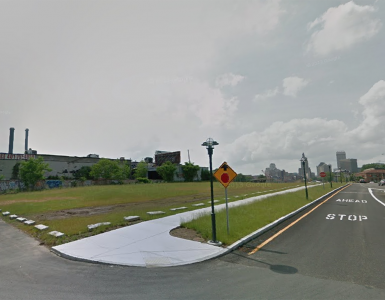The Fox Point Neighborhood Association has expressed their opposition to the 195 land commission; press release:
FPNA Asks House to Stop I-195 Redevelopment Commission
The Fox Point Neighborhood Association, (FPNA), has asked the House of Representatives to oppose Senate Bill 114 that would create a state-controlled commission with unprecedented powers over development of the I-195 parcels.
In two separate e-mails sent to their membership and other neighborhood associations, FPNA attached a link, which recipients could use to contact House Speaker Gordon Fox and Providence Representatives and ask them to oppose the bill.
FPNA President Ian Barnacle said allowing the Governor to appoint four representatives from the State and only three from the City, unfairly stacks the deck. “By a majority vote, this commission would decide everything about the sale, zoning and development of the 35 acres of land that will be freed up when old I-195 highway comes down,” Barnacle explains. “This obvious power grab ensures that no code of ethics, public meeting law, or detailed reports of the proposed commission’s activity will matter. It is blatantly unfair.”
Neighborhood associations across Providence participated at countless charettes, public meetings and hearings over three years to help develop the City’s 10-Year Comprehensive Plan, according to FPNA Vice President Daisy Schnepel. “This plan, which is supposed to influence zoning for the next 10 years, demonstrates how an inclusive public process should work,” Schnepel adds. Now, all of this volunteer time and effort will be dashed if this commission is allowed to become law.”
“We’re asking the House to show the same leadership qualities that our State Senator Rhoda Perry did by opposing the Senate leadership and voting no on this bill because of the make-up of the Commission,” Schnepel said. “I am proud that my Senator stood up to the challenge and opposed the bill in its final form.”
Schnepel said she agrees with, Arthur Salisbury, president of the Jewelry District Association who said at a June 13th forum, that any commission should only have advisory powers. The ultimate decision for what happens should be decided equally by both the city and the state,” Schnepel said. “Providence has put a lot of work into development plans already and has very skilled city planners who are necessary to further the development process.”
“Not only would this commission circumvent the city’s permitting system, it would also garner all the fees normally due the City,” Schnepel points out. “This loss at a time when Providence
has such dire economic need is unconscionable,” Schnepel continued. “It essentially succeeds in creating a city within our city that answers only to a state-controlled commission for the next 21 years.”
The Governor Office’s main argument for this commission is that it would speed up economic progress by not becoming bogged down by the local review and permitting process, Barnacle continues. “This claim is unfounded because Mayor Angel Taveras has already hired a consultant and established a Streamline Committee to ensure quick review of development projects,” he adds. “Instead of using a city review process that is in place, this Commission would set up a whole new level of government with a paid staff.”
In the e-mail blast to its membership, FPNA makes the other following points:
- To the property owners of Providence, who have been told by Mayor Angel Taveras that they will surely face additional tax levies, this unprecedented plan can only be viewed as “taxation without representation.”
- If this legislation is passed, it sets a dangerous precedent for the Governor Office’s ability to seize power over any local government on any future issue.
- The State Senate bulldozing this plan at the last minute – with little warning or chance to respond – is an affront to the public process of securing input from its citizens.
- As written, this legislation ensures that this commission will have no accountability for their decisions or actions.
- It is not in the interest of any city to create a development zone, in which the city has no voice.
- Stopping this legislation would allow for the necessary time to come up with a better plan.




Add comment